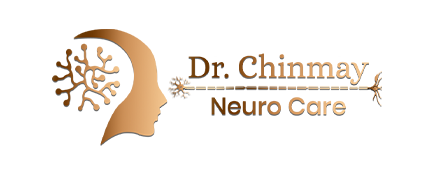
What is Dementia?
Dementia is a term used to describe a decline in mental abilities such as memory, thinking, social skills and executive capabilities which interfere with daily life. It’s not a specific disease but a collection of symptoms caused by various underlying conditions. Memory loss is one of the most common but not the only sign of dementia. Minimal cognitive impairment is the initial stage of dementia, and if diagnosed at this stage, further progression to full blown dementia can be arrested with appropriate medications and early intervention measures.
Causes of Dementia
Dementia is caused by damage to the brain, which affects nerve cells and their ability to communicate with each other. This damage can result from various factors, including:
- Alzheimer’s Disease: The most common cause, responsible for 60-70% of dementia cases.
- Vascular Dementia: Linked to poor heart health, high blood pressure, and diabetes.
- Brain Injury: Repeated traumatic brain injuries (TBI) can lead to dementia.
- Infections: Conditions like HIV and other brain infections can result in dementia.
- Alcohol Abuse: Long-term alcohol abuse can contribute to dementia.
- Nutritional Deficiencies: Lack of essential vitamins like B12 can lead to cognitive decline.
- Medications: Certain drugs may cause dementia-like symptoms.
- Genetic Factors: Rare genetic conditions may increase the risk of dementia.
- Other Diseases: Parkinson’s disease, Down syndrome, and Creutzfeldt-Jakob disease can also cause dementia.
Types of Dementia
Dementia refers to a group of symptoms affecting memory, thinking, and daily functioning. It can result from various conditions, each with distinct features and impacts on the brain. Here are the most common types of dementia:
- Alzheimer’s Disease
The most prevalent type of dementia, Alzheimer’s disease accounts for 60-70% of cases. It primarily affects memory, thinking, and behavior, worsening over time and significantly impacting daily activities. - Vascular Dementia
This type of dementia is linked to problems with blood flow to the brain, often caused by strokes or damaged blood vessels. Vascular dementia can lead to issues with planning, concentration, and memory, and its progression depends on the severity of the underlying vascular problems. - Lewy Body Dementia
Lewy body dementia is caused by abnormal protein deposits in the brain, known as Lewy bodies. Symptoms include cognitive decline, movement problems, and visual hallucinations. This form of dementia may overlap with Parkinson’s disease. - Frontotemporal Dementia (FTD)
FTD occurs due to damage to the frontal and temporal lobes of the brain, affecting personality, behavior, and language. Symptoms can include changes in social behavior, difficulty speaking, and poor decision-making. - Parkinson’s Disease Dementia
Parkinson’s disease can progress to dementia in its later stages. It primarily affects cognitive abilities, memory, and problem-solving, often following the development of motor symptoms. - Mixed Dementia
In mixed dementia, a person experiences a combination of multiple types, such as Alzheimer’s and vascular dementia. This form of dementia presents symptoms from both conditions and may require complex treatment approaches. - Creutzfeldt-Jakob Disease (CJD)
A rare and rapidly progressing form of dementia, CJD is caused by prion infections that result in severe cognitive decline. It typically progresses quickly, leading to severe symptoms within months. - Huntington’s Disease Dementia
Huntington’s disease, a genetic disorder, causes progressive cognitive decline and movement issues. This form of dementia typically appears in mid-adulthood and is linked to genetic mutations.
- Alzheimer’s Disease
Why Choose Dr. Chinmay Kumbhar for Dementia Treatment?
- Experienced Neurologist: Dr. Chinmay is an expert in diagnosing and treating dementia with advanced medical techniques.
- Holistic Treatment Plans: Provides customized care options, including medications, memory enhancement therapies, and lifestyle modifications.
- Patient-Centered Approach: Focuses on creating individualized treatment plans tailored to each patient’s symptoms and progression.
- Enhanced Quality of Life: Strives to improve memory, cognitive skills, and daily functioning for individuals living with dementia.
Don’t let dementia control your life. With proper care and expert guidance from Dr. Chinmay Kumbhar, symptoms can be effectively managed, and the overall quality of life can be improved.
